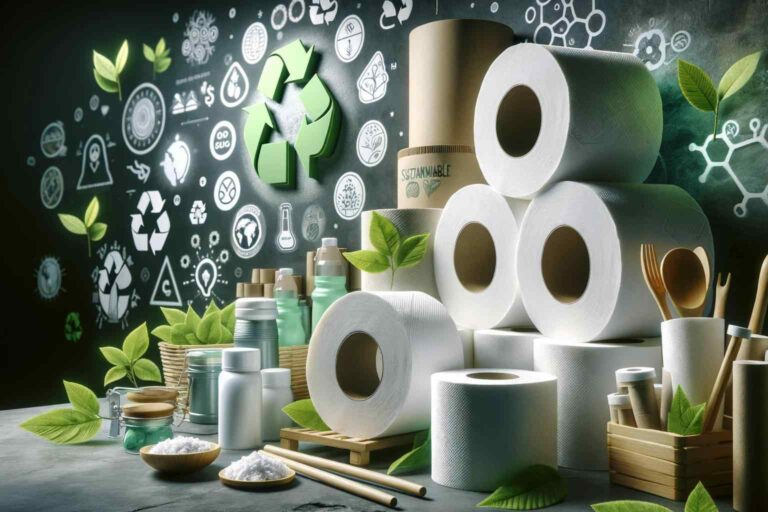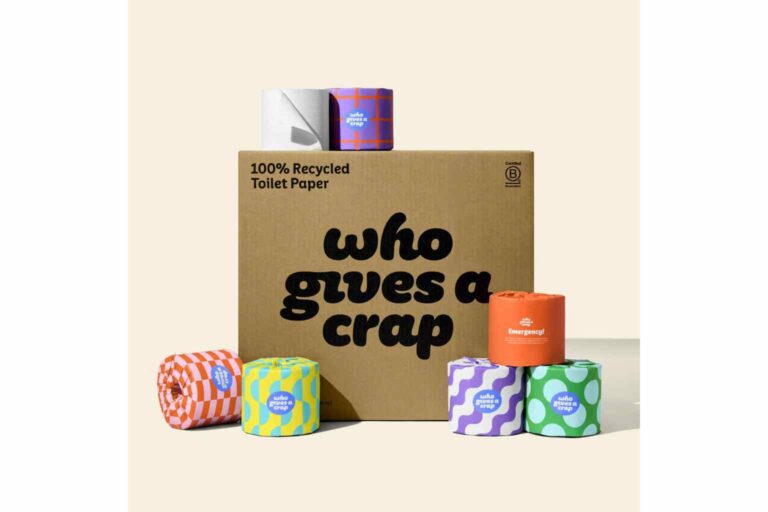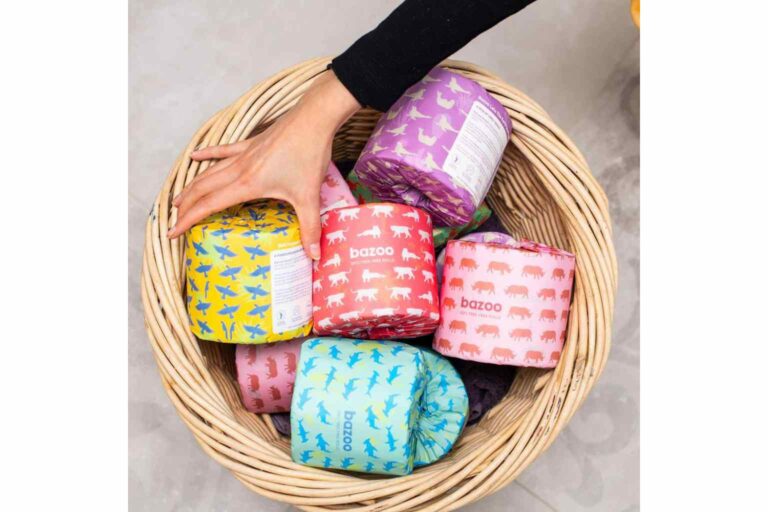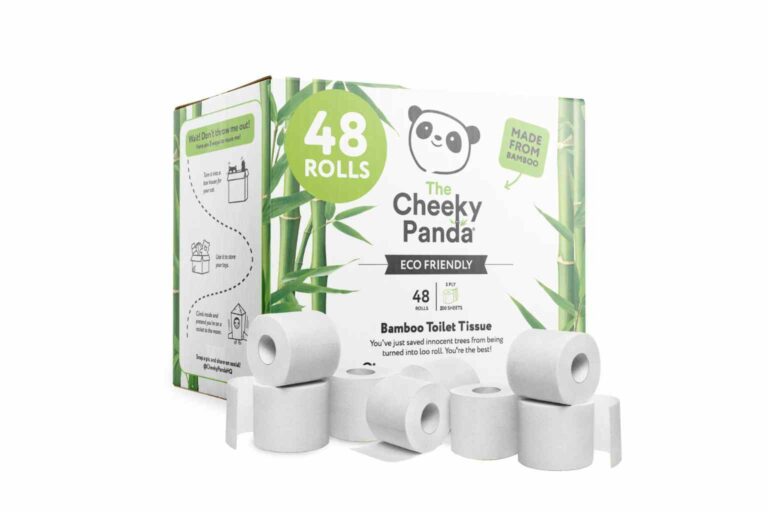
Sustainable Toilet Paper: Introduction
Welcome to today’s weekly tip where our eco-friendly focus is on Sustainable Toilet Paper. In our continuous journey towards a more sustainable lifestyle, even the smallest choices can have a significant impact. Traditional toilet paper, often made from virgin wood pulp, contributes to deforestation and requires extensive water and energy for production.
However, the rise of sustainable toilet paper presents a soft, yet powerful, opportunity to reduce our environmental footprint. Made from recycled materials or responsibly sourced bamboo and hemp, these eco-conscious alternatives offer a win-win for both our comfort and the planet. This article will unwrap the layers of sustainable toilet paper, from its benefits to the environment to spotlighting brands that are leading the change.
Join us as we explore how switching to sustainable toilet paper can be a simple step toward big environmental benefits.
Non-Sustainable Toilet Paper: A History
The evolution of toilet paper is a fascinating journey through hygiene practices across civilisations and eras. The earliest recorded use of toilet paper dates back to 6th century China, where it was a luxury item for the imperial court. This innovation marked a significant shift from previous hygiene methods, which ranged from communal sponges in ancient Rome, known as xylospongium or “poo sticks,” soaked in vinegar or salt water, to the use of corn cobs and leaves in more rural areas.
By the 14th century, China had begun mass-producing paper specifically for toilet use, showcasing an early understanding of personal hygiene. However, it wasn’t until the late 19th century that toilet paper as we know it began to take shape in the Western world. Joseph Gayetty introduced the first commercially packaged toilet paper in the United States in 1857.
Marketed as “Gayetty’s Medicated Paper.” Initially, toilet paper was sold in flat sheets, embossed with Gayetty’s name. The invention of the perforated roll in the 1880s by the Scott brothers revolutionised the product, making it more accessible and convenient for the general public. Despite its practicality, toilet paper remained a taboo subject, often not advertised due to societal modesty.

It took decades before toilet paper became a staple in households worldwide, evolving from luxury to necessity, reflecting changing attitudes towards hygiene and comfort.
Non-Sustainable Toilet Paper: Environmental Impact
The environmental footprint of traditional toilet paper is more significant than many realise. Annually, the toilet paper industry is responsible for the felling of millions of trees, contributing to deforestation and the loss of biodiversity.
This large-scale removal of trees, particularly from ancient and endangered forests, disrupts ecosystems and wildlife habitats. Moreover, the production of conventional toilet paper is water and energy-intensive. It is estimated that manufacturing a single roll requires about 140 litres of water, highlighting a substantial demand on our water resources.
Additionally, the bleaching process, which gives toilet paper its white colour, often involves chlorine-based chemicals that can release harmful pollutants into waterways.The journey towards sustainable toilet paper aims to address these environmental concerns. By opting for materials that are either recycled or come from sustainable sources like bamboo and hemp, the industry can significantly reduce its ecological impact.

These alternatives not only require less water and energy to produce but also minimise the reliance on harmful chemicals, paving the way for a more sustainable approach to a product used daily by billions around the globe.
Sustainable Toilet Paper: What to Look For
When choosing sustainable toilet paper, several key factors should guide your selection. First, consider the material. Recycled paper products maximise the use of existing resources and reduce the demand for virgin wood pulp. Meanwhile, toilet paper made from bamboo or hemp offers a fast-growing, more sustainable alternative to traditional sources.
Certifications can also provide guidance. Look for labels like the Forest Stewardship Council (FSC) certification, which ensures the paper comes from responsibly managed forests, or the EcoLogo, indicating low environmental impact. These certifications help consumers identify products that meet strict environmental and social standards.
Additionally, pay attention to the production process. Eco-friendly brands often employ methods that reduce water and energy use and avoid chlorine-based bleaching, further minimising their environmental footprint. Packaging is another aspect to consider; sustainable brands typically use recyclable or compostable packaging to reduce plastic waste.

By prioritising these elements, consumers can support practices that contribute positively to the environment. Sustainable toilet paper offers a practical solution for reducing our ecological impact while meeting our daily needs, demonstrating that even small changes can lead to significant environmental benefits.
Sustainable Toilet Paper: Three of Our Favourite Brands
Who Gives A Crap
Revolutionising the way we think about toilet paper, Who Gives A Crap combines high-quality, eco-friendly products with a mission to improve global sanitation. Their toilet paper, made from 100% recycled paper or bamboo, is free from inks, dyes, and scents, catering to both the environment and sensitive skin. Notably, they donate 50% of their profits to help build toilets for those in need around the world. Available through their online shop, Who Gives A Crap offers a subscription service to ensure you never run out of this essential, sustainably. Use Code TWENTYMORE for 20% off your first subscription order.

Bazoo
Introducing a carbon-negative approach to bathroom hygiene, Bazoo’s toilet paper is made from 100% sustainably sourced bamboo. Each roll is wrapped in recyclable paper packaging, aligning with their zero-plastic policy and commitment to reducing environmental impact. Bazoo calculates and offsets double the carbon emissions generated during production and transportation, investing in global projects that combat climate change. Their eco-friendly, skin-friendly, and septic-safe products are accessible through their online shop, offering consumers a responsible choice that benefits the planet. Use Code LAUTARO76487 for a £10 discount on your first subscription order!

The Cheeky Panda
Pioneering the use of bamboo in everyday products, The Cheeky Panda offers toilet paper that’s not only ultra-sustainable but also incredibly soft. Their products are crafted from 100% FSC-certified bamboo, requiring less water, less land, and producing fewer carbon emissions than traditional materials. The Cheeky Panda’s toilet paper, which is also free from chemical scents, dyes, and B.P.A., is available for purchase online, emphasising their commitment to environmental sustainability and consumer health. Head to their website and use code PLAYITGREEN15 for 15% off your first order!

Sustainable Toilet Paper: Wrap Up
Embracing sustainable toilet paper is a simple yet impactful way to contribute to environmental preservation and personal well-being. Brands like Who Gives A Crap, Bazoo, and The Cheeky Panda are at the forefront, offering products that prove luxury and sustainability can coexist. By choosing toilet paper made from recycled materials or sustainable bamboo, and supporting companies committed to ethical practices and carbon offsetting, we make a daily choice that echoes our commitment to the planet.
Let’s continue making conscious choices, starting with the basics. Sustainable toilet paper isn’t just a personal necessity; it’s a collective step towards a greener future.
Play It Green: Empowering Your Sustainability Journey
Ready to take your commitment to sustainability to the next level? Play It Green stands as your partner in creating positive environmental change. From educational resources on sustainable practices and signposting to sustainable services to initiatives like tree planting and social giving, Play It Green offers a holistic approach to environmental stewardship.
Join us in the journey toward sustainability—embrace eco-conscious practices and be a force for positive change in our world. All whilst staying relevant, meeting legislation and aligning with the values of today’s consumers and employees.







